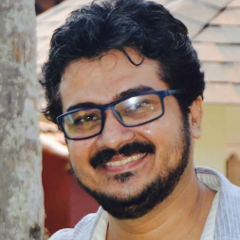Party in protest: CPM foresaw a problem, but not its scale

Mail This Article
The revolts the CPM is facing over denying two-term MLAs another chance to contest calls into picture a five-year old party document that lamented the rising tendency to grab parliamentary posts at any cost. Leaders elected to a post considered themselves worthy of holding it for a lifetime, CPM’s Kerala state committee observed prophetically in November 2018 after the Kolkata plenum.
Introspecting, the state committee said that leaders were fomenting trouble when they were denied an extended stay at the top and it was important to stick to the two-term norm. The committee was spot on in its estimate but seems to have underestimated the scale of protests that has rocked the party in 2021.
The state committee meeting also observed that the urge to grab parliamentary posts was evident in the 2016 assembly election. Party workers were challenging the organisation when things did not pan out the way they wanted, forgetting all the party had done for them so far. The party was witnessing a growing bourgeois trend of getting hold of high offices.
The CPM was different from rivals Congress and BJP because it had a democratic process to select its candidates to the elections, acting state secretary A Vijayaraghavan said while declaring the list of the party’s candidates. Yet the party had estimated that it was gradually moving into the same tendency it lampooned in its bourgeois rivals. Even though the state committee itself called for measures to check such tendency, contemporary experience shows the party being rocked by rebellion.
Even partner CPI criticised the seat division in the Left Democratic Front and the candidate selection by the CPM. The party had not encountered any such problems in the recent election to local self-government bodies in which grass-roots level workers contested. That would suggest that the party forums blame the protests and posters on top-level leaders. Of course, the CPM is officially putting the blame on political rivals, but the leadership is forced to dig deeper to find out who is raising the banner of revolt on the face of unpleasant decisions.
The CPM is particularly shocked by the rampant protests in Kuttiyadi over the decision to let new ally Kerala Congress (M) contest from there.
The party leadership has tried to convince the district committees by pointing out the leadership gap that contributed to its rout in West Bengal, where the same set of leaders served as MPs and MLAs for 30 years. The CPM in Kerala is moving into a system where its leaders can work for nine years in organisational leadership capacities and 10 years in parliamentary positions.
The CPM’s list of candidates has laid to rest all speculations that Pinarayi Vijayan would be willing to compromise on principles not to compromise the party’s chances of coming to power for a second term. In the process, Pinarayi has also ensured that the candidates are his trusted folks.
Pinarayi is the only politburo member to contest the assembly election in Kerala. There is no confusion over the next chief minister candidate like in 2016, when V S Achuthanandan, though not a member of the politburo, contested the election. Senior central committee members E P Jayarajan, T M Thomas Isaac and A K Balan are out of the candidate list. M V Govindan and K Radhakrishnan are contesting but they are comparatively new to the central committee. That makes health minister K K Shailaja effectively the No. 2 in the CPM parliamentary camp.


